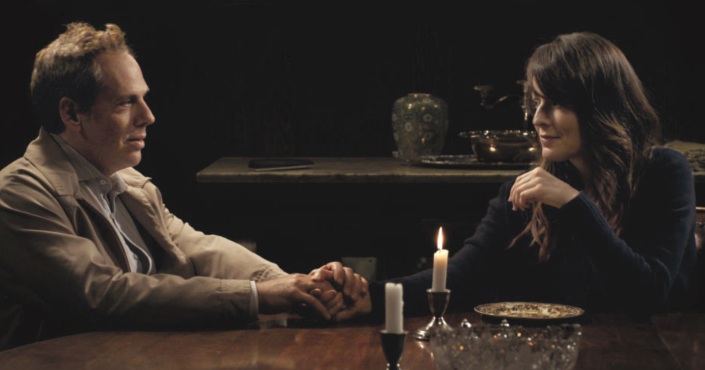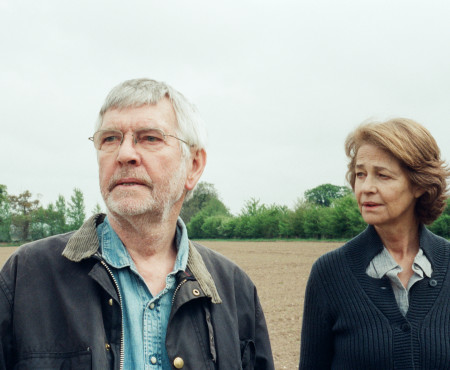Lynn Shelton’s latest film Touchy Feely is a complete mess, albeit, an interesting mess at times. It’s the kind of film that lays out a very routine idea of its world and its characters, only to completely come up short in regards to thorough characterization and motivation. Shelton wants so badly to communicate something to us about desire and connection, but her way of expression here is tied down and locked up. By default, Touchy Feely is a flat and hollow experiment, one which comes up short in furthering Shelton as a name to watch out for on the indie front.
The film follows massage therapist Abby (Rosemarie DeWitt), who is unable to do her job after being stricken with some sort of mysterious aversion to body contact. Abby’s “rebound” relationship with her boyfriend (Scott McNairy) has gone stale, setting off the balance in her life and those around her. Josh Pais, the film’s sole bright spot and consistent scene stealer, plays Abby’s brother Paul, an uptight and awkward dentist whose stagnant dental practice begins to flourish as a result of some odd magic touch that he’s acquired. Meanwhile, Paul’s daughter Jenny (Ellen Page) aids him at work, but struggles to break free from her father and start a life of her own. Sadly, Page has little to do here, but makes each of her scenes count.
While Your Sister’s Sister maintained a level of natural charm and warmness, Touchy Feely feels misguided as Shelton ditches the loose improvisational approach in favor of a more standard narrative. The cast is generally likable and functional, but the simplistic gestures on display bare no formation or shape. The arcs of Abby and Paul are at first intriguing, but Shelton fails to really dig into these characters; they’re trapped in the film’s odd orbit of small discoveries and mystical moments, most of which feel out of place and unearned.
The film’s modest inquiries into connection and recovery are felt, but the accumulation of Shelton’s desired emotional tugs are too fleeting to make a lasting impression. Even as Shelton delves into some relatable takes on life uncertainty, it’s all way too unexplored and undeveloped to make any sort of lasting impression. The comedy and drama surrounding this Seattle family are a far cry from the unexpected revelations and complicated relationships in Your Sister’s Sister.
Though Your Sister’s Sister was smaller in scale, the emotional complexity was effortlessly apt. Here, the drama is all tuned to Shelton’s mood of existential uncertainty; two characters actually come to moments of realization by taking ecstasy, a clear sign that Shelton is relying on lazy tactics to spell out this “self improved” dramedy.
Shelton feels much less confident here, essentially feeling her way through the dark to impose upon us a tidy tale of family bonds and half-cooked conflicts. For a film that grows uniquely odd in its final act, Touchy Feely squanders every chance to say something new or insightful about human connection. DeWitt, Pais, and Page make this somewhat watchable, but their characters are too thinly sketched to deliver Shelton’s intended commentary on the sometimes transitional trauma of life.




















